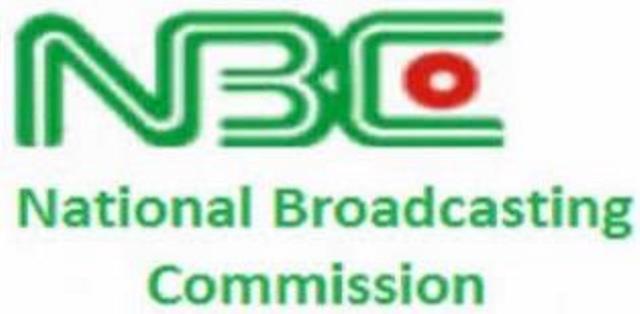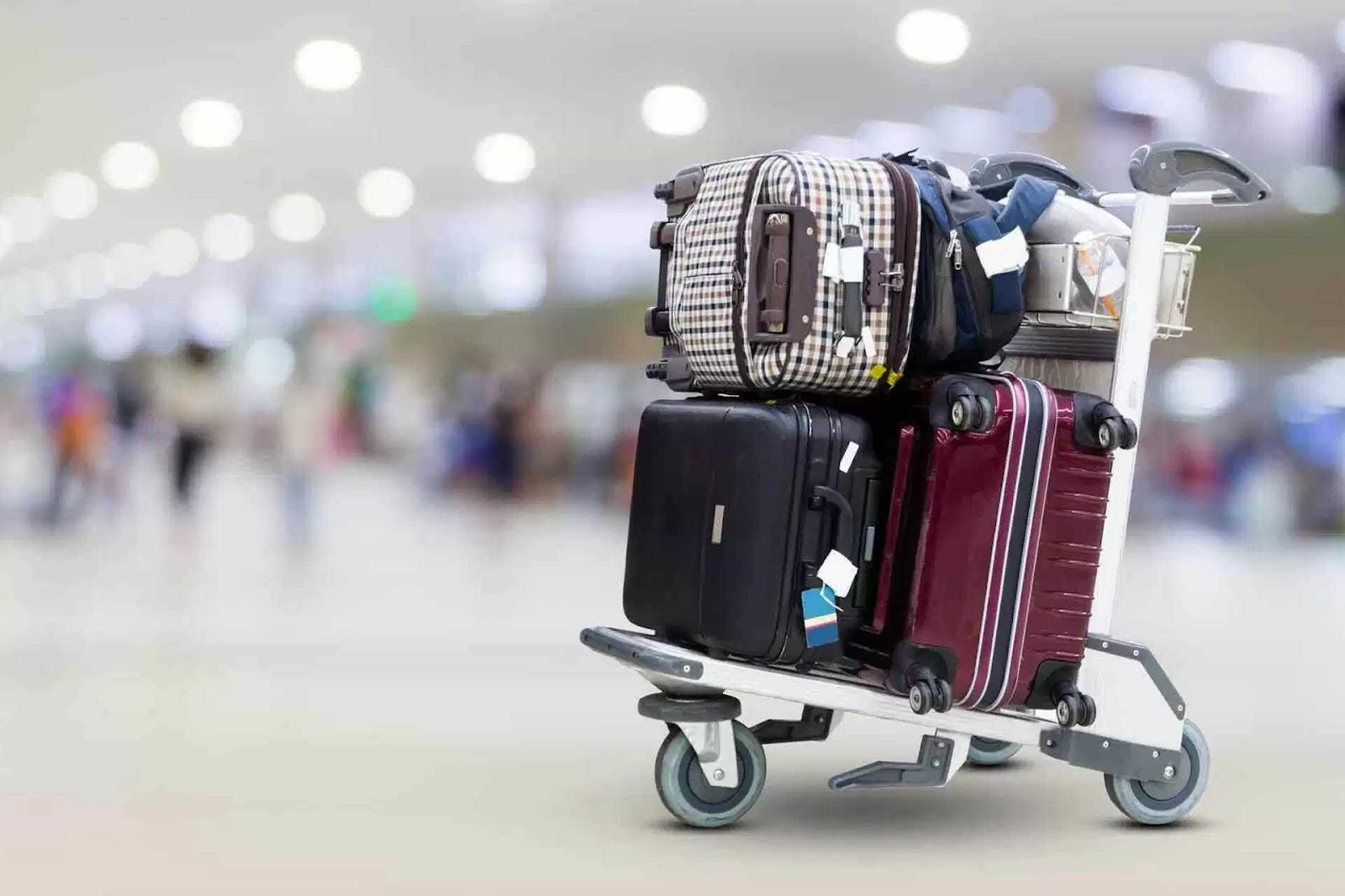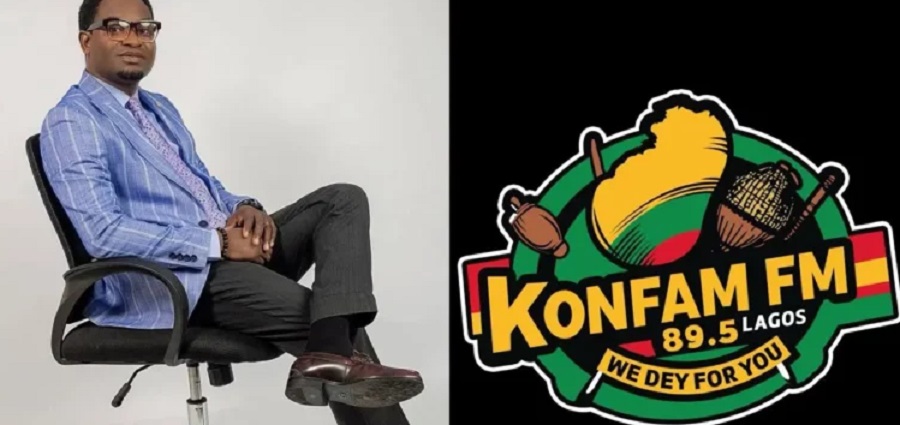Broadcasting
Nigeria’s DSO: Fresh Missteps Loom

By Dominic Omuedi
Heartwarming, it was for me, to read reports of the press conference addressed on Tuesday by Alhaji Lai Mohammed, Minister of Information and Culture, on the country’s Digital Switchover (DSO) process, which seemed to have been interred under the rubble of poor conception, mismanagement and corruption.

The cheer brought by the government’s announced intention to reboot the process, positive as appears, has shown nothing beyond the fact that the DSO process is not completely forgotten. No more. No less.
At the press conference, Mohammed unveiled a 13-member Ministerial Task Force to take charge of the DSO process which, for years, has proceeded in staccato fashion and left the country trailing many others, including in Africa.
Members of the task force, to be chaired by Mohammed, include Armstrong Idachaba, Joe Mutah of the Federal Ministry of Information and Culture (Secretary), Dr Armstrong Idachaba, acting Director-General of the National Broadcasting Commission (NBC); Olusegun Yakubu of Pinnacle Communications and Toyin Zubair, promoter of the defunct HiTV and now of In view.
At the press conference, Mohammed announced that the Federal Executive Council (FEC) has approved outstanding payments to key DSO stakeholders, a development he said will remove all the hindrances to the entire process in the past three years. The funding source for the DSO, broadcast industry experts reckon, is from the N34billion paid by MTN for broadcast frequency.
“With the payment approval by FEC, and with 31 states to cover, we have our work cut out for us. We have no more excuses for not rapidly rolling out the DSO across the country, hence my decision to set up a 13-member Ministerial Task Force, which I will personally chair, to take charge of the rollout,” the minister said excitedly.
He added that the government took a decision last year, on account of the financial difficulties induced by Covid-19, that the DSO process will be private sector-driven, effectively cancelling the plan to provide subsidies for Set-Top-Boxes (STBs) or signal carriage.
What followed, typical of pronouncements on the DSO, was a raft of big-sounding and dreamy projections. The DSO, said the minister, will deliver over one million jobs in the next three years, with 50,000 of such coming via local production of 24 million STBs and Smart TVs.
“Not even 20 Set-Top-Box manufacturers can comfortably produce the initial requirements to feed the market. Furthermore, our position in West Africa, coupled with our size, makes us the definite source of these products for the whole sub-region,” he said.
Television production, he said, will create 200,000 jobs, as digitization will lead to “180 state channels, 30 regional channels and at least 10 national channels”. Digitization, he added, will boost local content propagation and draw many more Nigerians into the business. This, he said will create 400,000 jobs in film production and nudge Nollywood towards subscription Video-On-Demand on STBs and online, thereby providing cheaper distribution means, helping producers to make more money.
The envisaged boom in production, added the minister, will create an additional 200,000 jobs via increase in foreign demand for fully indigenous content and fetch the country in excess of $100 million.
“I have no doubt in my mind that a successful DSO is not just a job spinner, creating over one million jobs in three years, but also a money spinner,” said the minister.
Anyone familiar with the country’s DSO journey will not just doubt the minister’s projections, but dismiss them as drunkenly optimistic, especially given how squalidly it has been managed.
Undoubtedly, poor funding has inhibited the process. But more than that, squalid leadership and ill-conceived strategy are greater inhibitors. For instance, despite the pilot project, with the last roll-out three years ago in Osogbo, Osun State, there is no sustainable Digital Terrestrial Television (DTT) coverage even in Plateau, Enugu, Osun, Kwara, and Kaduna states as well as the Federal Capital Territory, which were pilot states. Free Tv signals limited to state capitals.
This implies inhabitants outside state capitals are excluded and shows that the broadcast signal carriers selected for the DSO have inadequate technical and financial capacity for effective DTT coverage, the first step in the DSO.
The minister’s near-orgasmic projections on STBs, which convert analogue signals to digital, ignore the fact that the country, for strange reasons, chose a process that builds conditional access (CA) on top of the STBs instead of a standard affordable STB process. This means that the STBs process adopted for Nigeria’s for DSO will be out of the financial reach of most Nigerians. The standard STBs for DSO are supposed to receive free-to-air signal and affordable. Those with conditional access built onto them are similar to pay television STBs and are much pricier. Inview, the company providing the TV system/ conditional access, has already been paid N1billion for running the TV system only in Abuja and Jos.
The company and others involved in the process are understood to have filed invoices for additional sums.
The cancellation of subsidy for STBs, forced on the government by the inclement economic climate, is certain to ensure that the prices of the boxes will stretch users to breaking point. Prior to the devaluation of the naira, for instance, the recommended price STB ranged between N20,000 and N30,000. The boxes used in the roll-out at pilot locations were all imported, with the Federal Government giving the alleged STB manufacturers guarantees to fund the importation to the tune of N5billion.
The inordinately ambitious projection that Nigeria will, within three years, be heaving with locally manufactured STBs is something akin to a boxer’s boast-full of sound and fury.
According to experts, there are only three companies claiming to have STB assembly lines in the country and not a single one is manufacturing.
How the few companies, even operating at full capacity, can assemble 24 million STBs over five years has something that has eluded experts, who reckon that it will take a minimum of five years to meet the demand of 24million users- if all the companies function at full capacity. Importantly, not one of those claiming to have assembly/manufacturing capacities are in operation, meaning that they are engaged in no economic activities and employ nobody, thereby bilking the country through government contracts.
But they are not alone and are actually encouraged by the disposition of government officials, who view funding for the DSO process as “serve yourself,” the local parlance for buffet.
In a 21 March 2019 report published by The Guardian, experts interviewed identified corruption as the main obstacle to the country’s transition from analogue to digital broadcasting. A Director-General of the National Broadcasting Commission (NBC) is on suspension from office and facing prosecution by the Independent and Corrupt Practices Commission (ICPC) over allegedly fraudulent release of N2.5billion to a private company. The matter, which is before the Federal High Court, Abuja, relates to the 2016 release of N10 billion to the Ministry of Information and Culture for the DSO.
The ICPC is accusing the suspended D-G of using his position to confer a corrupt advantage on his associates in two private companies.
The suspended D-G is alleged to have asked the Information Minister to approve payment of N2.5 billion to Pinnacle Communications Limited, a private signal distribution operator, as “seed grant” for the DSO for which it was ineligible. Mohammed, who was listed as a witness in the trial, claimed he approved the payment based on expert advice given by the suspended D-G. The DSO guidelines, provided by a Federal Government Whitepaper, directed that the process be exclusively managed by companies affiliated to the Federal Government. Based on the guidelines, two companies were nominated for the purpose. One of these was ITS, an affiliate to the Nigerian Television Authority (NTA), which has no infrastructure of its own and is relying on the one owned by another private operator. It got also go N1.7billion as seed grant.
The assumption that our wonky DSO system will boost local content production because it will serve as distribution platform is also one without basis, as International Telecommunications Union (ITU) DSO policy is simply transiting free-to-air analogue signals to digital signal. Thus, Nigeria’s system, with its in-built conditional access system, will rob Nigerians of the constitutionally-guaranteed right to receive information in view of the fact that most free-to-air broadcaster are government-owned. In effect, 90 million Nigerians already living in poverty will be required to buy STBs, movies online and unlimited internet service to access such.
The claim that Nollywood output will benefit from better distribution is also a ruse. Nigerians are already using smart devices through which they access Nigerian creative content online.
Many have also blamed ministerial interference for the corrugated DSO process, arguing that worldwide, the DSO process is driven by the regulator and the industry.
What I have observed since 2015 is a lot of ministerial interference which, in addition to other factors, will leave the country panting to achieve DTT coverage by the time the rest of the world would have moved on a more modern platform, the OTT
-Omuedi, a retired broadcast engineer, writes from Ughelli
Broadcasting
Maximise Your Easter Getaway in Nigeria with Smart Travel Hacks

Easter is almost here, and with it comes the perfect opportunity to escape the everyday hustle and embark on a memorable adventure. Whether you’re craving some ‘chilling’ time, quality ‘family’ time, or a ‘pepper dem’ getaway, Nigeria offers endless possibilities for exploration. And the best part? Travelling locally has never been easier or more affordable.

Whether you’re a ‘newbie’ traveller or a seasoned pro, we’ve got you covered with essential hacks that will make your trip a breeze. Say goodbye to stress and hello to smooth sailing as you navigate your Easter getaway like a true travel expert.
Planning your trip is like packing your suitcase – essential, not optional
Just like you wouldn’t leave home without your power-bank (just in case!), don’t head off on a quick trip without a plan. A little prep can save you time, money, and stress — from booking flights and sorting transport, to packing light and right.
Nigeria has endless ways to travel. Flying with local airlines like Air Peace or Ibom Air is quick and budget-friendly, while renting a car gives you the freedom to explore scenic routes like the drive to Erin-Ijesha Waterfalls or the journey to Obudu Cattle Ranch. Not into driving? Buses like Peace Mass or God is Good are easy and affordable. And for a truly luxurious experience, you could even consider a chartered flight – if you’re balling!
Travel like a pro: The art of smart packing
Packing smartly is a crucial travel hack that can save both time and money. Amelia Campher recently shared on TikTok how she organised her hair, beauty, makeup, and personal accessories into different vanity cases and toiletry bags from Temu. Each one perfectly stores her daily essentials, keeping everything neat and accessible. She excitedly told her followers, “This is your sign to buy these bags!” Her clever packing strategy ensures that she’s ready for any trip without unnecessary clutter or stress.
Take Jasmin’s experience, for example. After getting hit with extra carry-on fees on a previous flight, she decided to be smarter about her upcoming family trip. In her search for a solution, she found the perfect backpack on Temu for just under ₦40k. Ticking all the boxes, it avoided extra carry-on fees and allowed her to efficiently pack 16 items plus a makeup bag. When they arrived at the airport, Jasmin’s family breezed through check-in with no issues, their backpacks meeting size requirements perfectly. No extra charges, no stress; just a smooth start to their unforgettable five-day family trip.
Backpacks aren’t just ideal for air travel – they’re also perfect for road trips. Whether you’re cramming your car with family and their belongings or flying high, packing smart and light is essential. A compact, well-organised backpack can make your journey easier, no matter the mode of transport.
To avoid unexpected charges when flying within Nigeria this Easter, it’s crucial to familiarise yourself with airline baggage policies; while Economy Class typically permits 15kg to 20kg of checked luggage, and Premium Economy or Business Class allows up to 30kg, always verify specific weight limits with your chosen airline to prevent costly excess baggage fees, especially if you plan on packing more than the standard allowance.
No passport needed: Pack your bags for a Naija Detty Easter
Why travel halfway across the world when Nigeria has it all? This Easter, skip the long-haul and discover the treasures on your doorstep. From the buzzing streets of Lagos to the ancient city of Benin and the serene hills of Jos, unforgettable adventures are just a short trip away.
By travelling locally, you’re not only creating new memories — you’re also supporting local tourism and helping grow our economy. With so many destinations to explore, there’s something for every kind of traveller. So pack your bags, plan smartly, and make this Easter your best Naija Detty holiday yet.
Broadcasting
KONFAM 89.5 FM Hits Airwaves in Lagos Tomorrow

The heartbeat of Lagos is about to receive a powerful new rhythm as KONFAM 89.5 FM officially launches in Lagos tomorrow, Wednesday.

Kayode Adegbite, founder, KONFAM FM,
KONFAM FM, Kayode Adegbite, brainchild of seasoned entrepreneur and media innovator, is a cutting-edge radio station poised to redefine the broadcasting landscape in Nigeria.
It promises to bring a fresh, tech-driven, and culturally rich approach to radio transmission.
Described as a fusion of technology, creativity, and community, KONFAM FM aims to captivate Lagosians with content that speaks directly to their experiences.
Whether it’s music, news, entertainment, lifestyle, or talk shows, the station is built to reflect the soul of the city and the pulse of its people.
Adegbite is no stranger to transformation.
As CEO of MediaCrush Nigeria Ltd, a leading Out-of-Home (OOH) advertising company, he has spent the past decade revolutionizing how brands engage with audiences across Nigeria.
With over 20 years of experience spanning finance, marketing, and media, he is now channeling his vision into broadcasting.
“KONFAM is not just another radio station,” Kayode said in a pre-launch interview.
“It is a movement, a platform for authentic voices, compelling stories, and meaningful conversations that empower and entertain.”
From its sleek state-of-the-art studio in the heart of Lagos to its impressive lineup of on-air personalities and programs, KONFAM FM is designed to be interactive, engaging, and youth-focused.
Broadcasting
Subscriber Withdraws Suit against MultiChoice, FCCPC over Price Hike

Festus Sanmi Onifade, subscriber and legal practitioner, has withdrawn his lawsuit challenging alleged unfair price hikes by MultiChoice Nigeria Limited, filed at the Federal High Court in Abuja.

Also listed as a defendant in the suit is the Federal Competition and Consumer Protection Commission (FCCPC).
In a notice of discontinuance, dated April 1, 2025, the claimant formally informed the court of his decision to wholly withdraw the suit, marked FHC/ABJ/CS/363/2025.
However, the notice, signed by Onifade, did not advance reasons for the withdrawal.
Onifade had earlier approached the court to challenge what he described as an unfair and unjust price increase announced by MultiChoice Nigeria, slated to take effect from March 15, 2025.
In the originating summons, he asked the court to determine, among other things, whether, given Section 128 of the Federal Competition and Consumer Protection Act, 2018, and other relevant laws, the notice of the impending price increase issued by the first defendant was not unfair, unjust, grossly inadequate and a breach of his consumer rights; whether, considering the subsisting appeal in MultiChoice Nigeria Ltd & Ors v. Festus Onifade & Ors, the defendant was not stopped from further increasing the price of its services.
The suit centred on legal tussle between Onifade and MultiChoice over price hikes, which the claimant insisted were being implemented in defiance of regulatory standards and without adequate consumer engagement.

 General News3 days ago
General News3 days agoWorld Bank Announces $800m Support for Nigeria’s CCT Initiative

 Telecom2 days ago
Telecom2 days agoBanks, Telcos Mull New Billing Plans for USSD Airtime Payments

 E-Financial3 days ago
E-Financial3 days agoFour Red Flags Nigerians Ignored until CBEX Crashed- DUBAWA

 Telecom3 days ago
Telecom3 days agoHow Starlink Took over Africa’s Largest Internet Market
- General News3 days ago
MIT MBA Students Explore Digital Innovation at MTN Nigeria

 E-Business2 days ago
E-Business2 days agoNIPOST in Intensive Care, Needs Reforms Need to – Kekemeke

 General News3 days ago
General News3 days agoNITDA, SecDojo Forge Partnership to Strengthen Nigeria’s Cybersecurity Resilience

 E-Financial2 days ago
E-Financial2 days agoLeadway Partners Firm to Launch Retail Insurance Product for Women




























